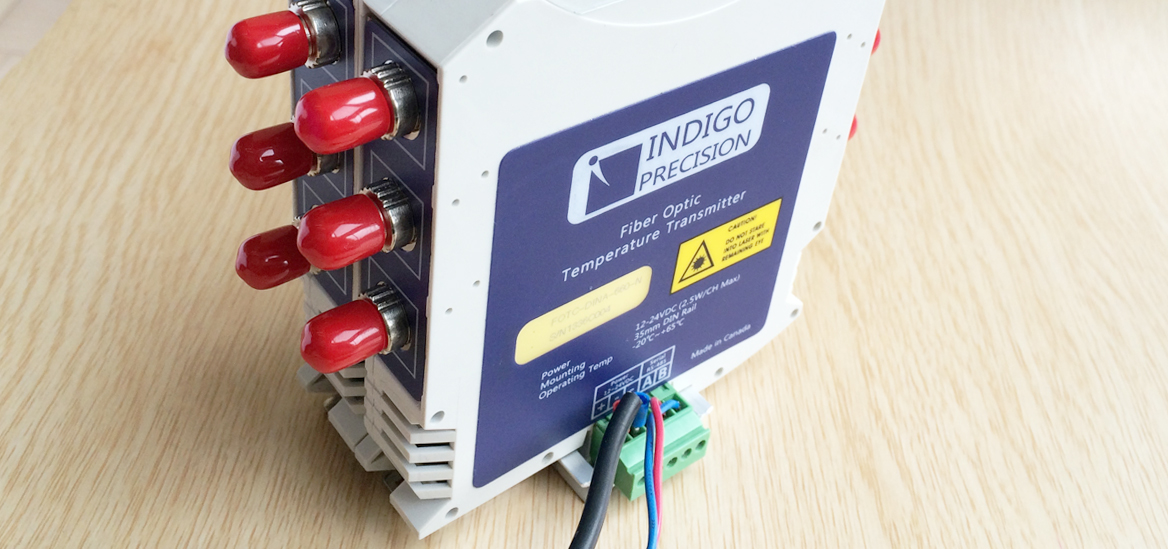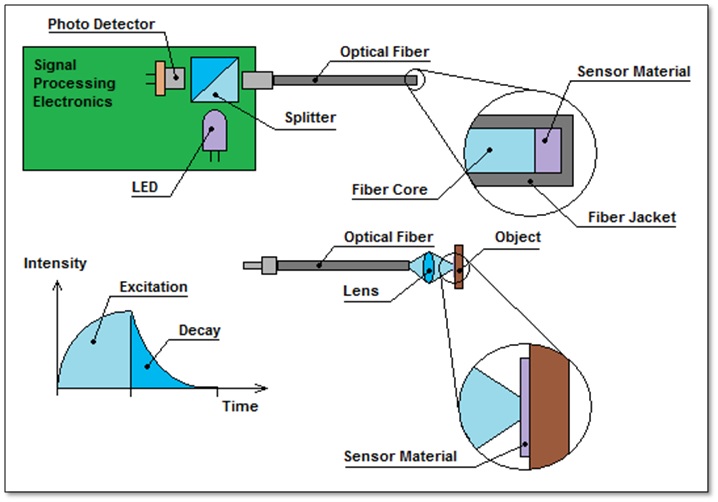
Our technology
INDIGO’s engineers have developed the single or three or six-channel fiber optic temperature sensor that is targeted for applications such as electrical power transmission and distribution. Unlike previous generation fiber optic signal conditioners which were bulky and expensive lab devices, INDIGO’s fiber optic temperature transmitter looks remarkably similar to a thermocouple or RTD (Resistance Temperature Detector) transmitter. It is DIN rail mountable and includes standard 4-20mA analog outputs as well as an industrial RS-485 serial bus for modbus communication to daisy-chained devices. INDIGO’s fiber optic probes also share a similar look and feel as standard thermocouples and RTD’s. Best of all, the cost of INDIGO’s fiber optic tempe rature sensors is close to commercial RTD and transmitter combinations. The accuracy and stability of INDIGO’s fiber optic sensors surpasses traditional thermocouples and can approach PRT’s (Platinum Resistance Thermometers) in calibrated applications. INDIGO has demonstrated long-term stability below ±0.025°C, although the bulk of its products ship with much lower accuracy requirements in applications which are far less demanding.


